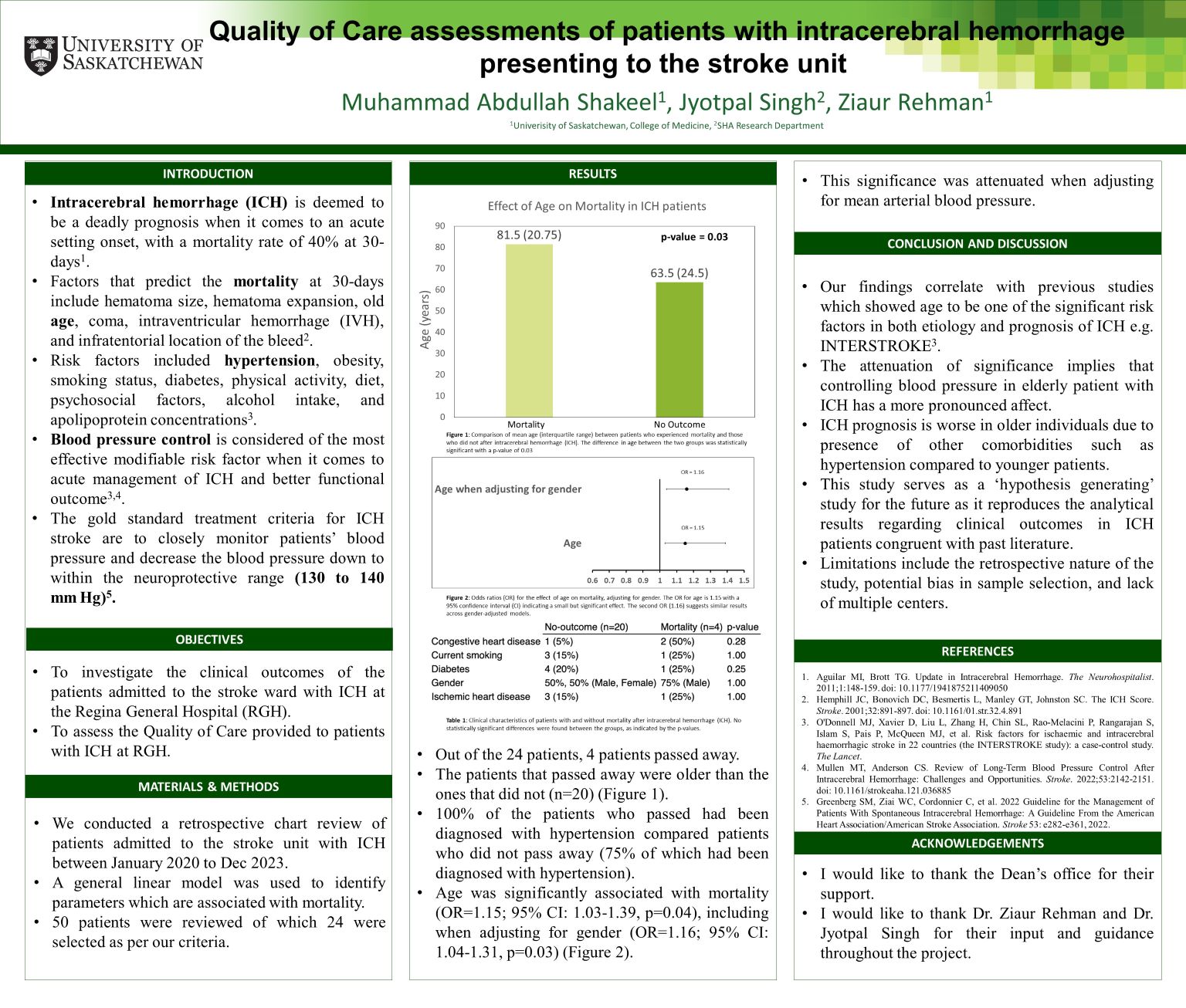
Quality of Care assessments of patients with intracerebral hemorrhage presenting to the stroke unit
Muhammad Abdullah Shakeel
Background: Intracerebral hemorrhage (ICH) has a mortality rate of 40% at 30-days. Mortality at 30 days is used as a standard outcome of ICH diagnosis. Blood pressure control is considered most effective modifiable risk for acute management of ICH and functional improvement. This study investigated clinical outcomes of patients admitted to the stroke ward with ICH at the Regina General Hospital (RGH).
Method: A retrospective chart review of patients admitted to the stroke unit with ICH between January 2020 to Dec 2023. A general linear model was used to identify parameters which are associated with mortality.
Results: Of 24 patients (n=11 female), 4 patients passed away. Patients who passed away were older (p<0.05) than those who did not. All 4 patients who passed away presented with hypertension compared to 75% of patients who did not pass away. Age was significantly positive association with mortality (OR=1.15; 95% CI: 1.03-1.39, p=0.04), including when adjusting for gender (OR=1.16; 95% CI: 1.04-1.31, p=0.03). This significance was attenuated when adjusting for mean arterial blood pressure.
Discussion: Age is critical to consider when treating patients presenting with ICH. Attenuation of the significance of age when controlling for blood pressure further suggests blood pressure to be a modifiable risk factor. Future research should include reproducibility across multiple centers, and a clinical trial to identify if regulating blood pressure improves patient outcomes.
